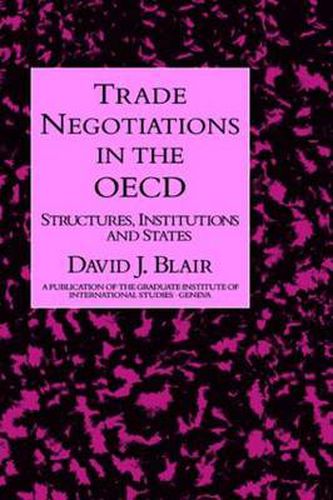Readings Newsletter
Become a Readings Member to make your shopping experience even easier.
Sign in or sign up for free!
You’re not far away from qualifying for FREE standard shipping within Australia
You’ve qualified for FREE standard shipping within Australia
The cart is loading…






Who prevails in international negotiations? What impact do negotiated agreements have on the policies and actions of participating countries? How well do contemporary international relations theories answer these questions? Using the case of trade negotiations in the Organisation for Economic Co-operation and Development (OECD), the author assesses the explanatory power of a number of models derived from the neo-realist approach, as well as from the theoretical literature on international regimes, international organization and interdependence. The study sheds new light on an important but poorly understood organization. It presents an in-depth historical account of negotiations conducted in the 1970s in four areas: export credits, agricultural trade, steel trade and trade in ships.
$9.00 standard shipping within Australia
FREE standard shipping within Australia for orders over $100.00
Express & International shipping calculated at checkout
Stock availability can be subject to change without notice. We recommend calling the shop or contacting our online team to check availability of low stock items. Please see our Shopping Online page for more details.
Who prevails in international negotiations? What impact do negotiated agreements have on the policies and actions of participating countries? How well do contemporary international relations theories answer these questions? Using the case of trade negotiations in the Organisation for Economic Co-operation and Development (OECD), the author assesses the explanatory power of a number of models derived from the neo-realist approach, as well as from the theoretical literature on international regimes, international organization and interdependence. The study sheds new light on an important but poorly understood organization. It presents an in-depth historical account of negotiations conducted in the 1970s in four areas: export credits, agricultural trade, steel trade and trade in ships.